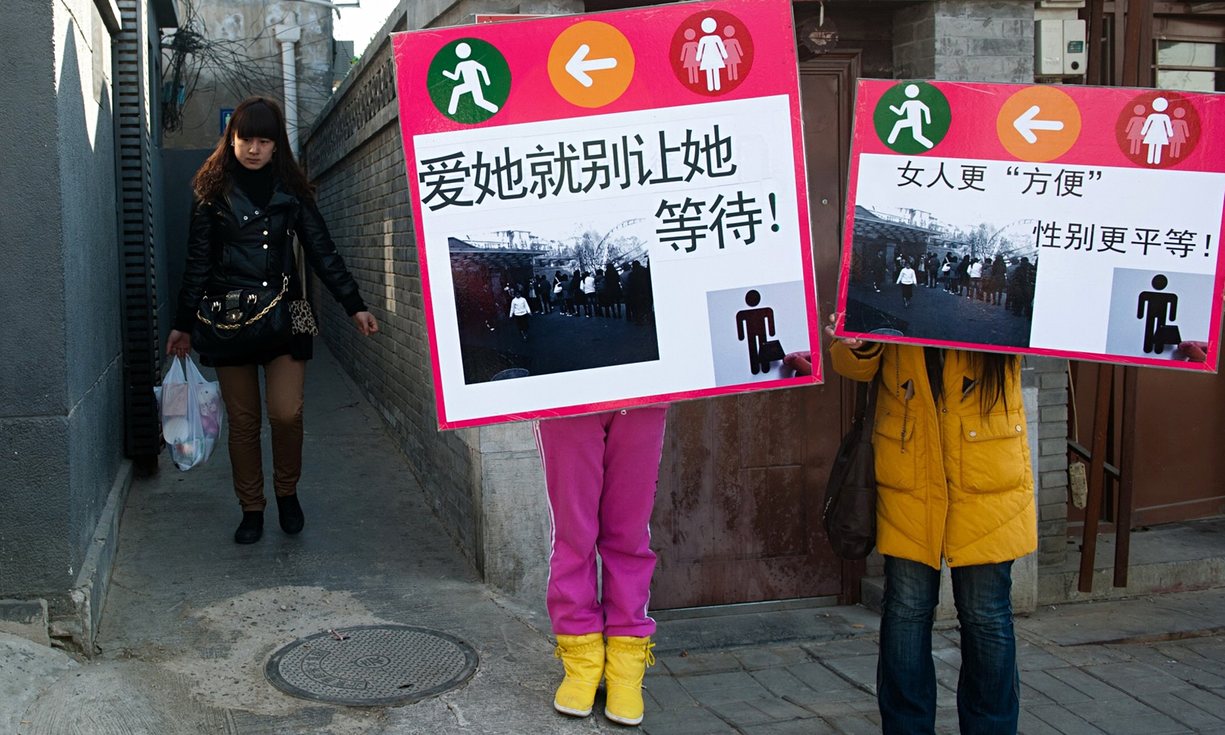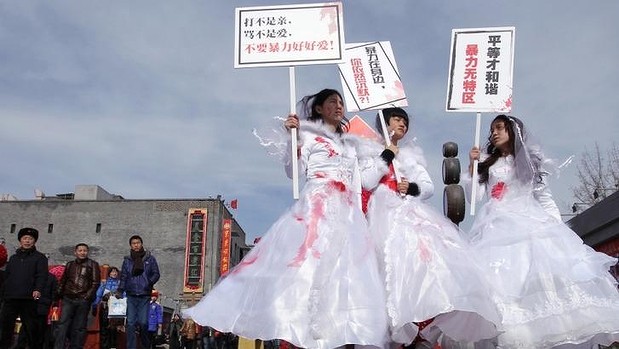Where are gay rights and feminism headed in China? Leading activist Li Maizi speaks out
As she fights on the front lines and authorities try to silence her, Li reflects on gay marriage and women’s rights in China.

More women in China are becoming engaged in feminism due to a new awareness of gender equality and an increasing number of incidents involving the mistreatment of women, according to some prominent activists.
Lu Pin 吕频, the founder of influential online platform Women’s Voices, has argued in the New York Times that feminism is on the rise in China. At the very least, heated debates on hot-button women’s issues have been echoing around in the online chambers of WeChat and Weibo. At the end of June, debate raged surrounding a new trial of women’s-only subway carriages in Shenzhen and Guangzhou. Whether isolating women passengers could work or whether it actually encourages victim-blaming fanned online flame wars, despite sexual harassment on public transport being a huge problem in China — an investigation affiliated with the China Youth Daily found that at least 13.6 percent of women have experienced assault.
To be on the front lines of feminism in China
Issues such as these have spawned renewed activism. Li Maizi 李麦子, one of the Feminist Five, is just one such leader of this new wave. Only 28, Li is a prominent figure in the movement, driving a new wave of activism. Her activities span both gay rights and feminist rights in mainland China and its diaspora.


Li got her start as a university student. When she saw how biased sex education was for women and girls, she decided to take the matter into her own hands, holding sessions where she showed off safe sex practices on campus. Then Li moved to Beijing and — despite an environment hostile to activism — demonstrated on the streets to raise awareness of various issues. Li staged “Occupy Men’s Toilets” to protest the lack of public toilets for women, “Bloody Brides” to protest domestic violence toward women, and “lesbian” weddings supported by the Beijing LGBTQ Centre. In 2015, she was detained along with four other feminists for one month.
“I was pretty surprised when the five of us were detained,” she told me. “In detainment I fell into deep thought. I just couldn’t figure it out! In the end I had an answer — the government didn’t like me because I had persisted in feminist activities and had feminist ideals.”
Today, though, she is still engaged in her causes. Li recently visited the Ministry of Housing and Urban-Rural Development following an invitation. A new plan to construct more public toilets for women was announced at the end of last year. Previously, Li had been writing letters to members of the National People’s Congress for years on this issue, and it was those members who brought up the issue to the ministry. It is this mixture of practical cooperation and encouragement — as well as holding the government to account through activism — with which Li now conducts her work.
Where will gay rights go in China?

As a feminist treading uneven terrain, Li occasionally sees hope for civil society. When Taiwan ruled to make gay marriage a certainty within two years, it was heartening for her as well. “I was initially thrilled about it, but it’s not immediately effective, as in Obergefell v. Hodges. The court ruling in Taiwan was postponed. It’s the same as when a person acquitted by the court, but is not free quite at that moment,” Li said.
In an interview with Reuters, Li Yinhe 李银河, the noted and perhaps only outspoken woman sexologist in China, said that Confucian culture and same-sex relationships are compatible, and so there is hope for equal marriage in mainland China. Echoing the same optimistic sentiment, Li Maizi said that her status as a lesbian in China has caused her pain, but also given her strength.
Li also argued that many legal scholars in China had started to think seriously about equal marriage, discussing it amongst themselves. The next step would be to put the issue on the government and public agenda.
In the age of Trump, the personal is political for feminism, for gay rights, for Li, and for everybody else. Every act is an act of defiance, and like other countries, China is experiencing its own rebirth of feminist ideals and engaged activism, with participants undeterred by an impossible state.





